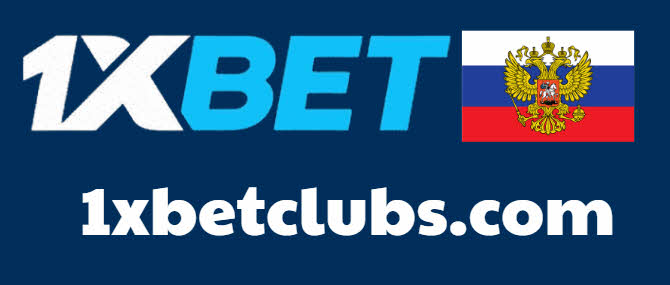They should also use accounting software that can generate financial statements automatically. One effective way to track expenses is to use accounting software specifically designed for construction companies. Programs such as Sage 100 Contractor and ProContractor by Viewpoint can help with everything from job costing to managing purchase orders. These programs can also help with tracking expenses by project, which can be especially useful for larger construction companies. A chart of accounts is a list of all the accounts used by a company to record financial transactions.
Pay your team
Working with a certified bookkeeper or accountant specializing in construction accounting can greatly benefit your business. These experts possess in-depth knowledge and expertise in handling complex financial responsibilities such as job costing, payroll taxes, and reporting. Cash flow management is critical for construction companies because they often have large expenses and long payment cycles.
Step 2: Implement Percentage of Completion for Revenue Recognition
By following these best practices, you can streamline your document management process and be well-prepared for future audits or legal inquiries. Once the costs have been categorized, monitoring expenses closely against the budget is important. This helps identify areas where costs are higher than expected, allowing for early intervention to prevent further overruns. It’s also important to look for areas where cost savings can be made, such as using more economical materials or reducing labor costs without compromising quality.
- This method allows contractors to accurately bill their clients for the work they have completed rather than charging them a lump sum fee.
- The outsourcing companies have the required specializations and knowledge of advanced technologies and practices of construction bookkeeping.
- This provides consistency but not accuracy, because it assumes an average level of emissions for any specific service and therefore offers no process or incentive for contractors to minimise actual emissions.
- Using the correct billing method for your construction company can make your journey to profitability that much easier.
- Unit price (or fixed-price) billing in construction accounting is a billing method that assigns a set fee to a unit of measure (for example, per square foot or per hour) for every unit of work you complete.
- In this in-depth guide, we will explore the key aspects of bookkeeping for construction companies.
Income recognition
Regular audits should be conducted by an internal or external auditor to ensure that the financial records are accurate and complete. Auditors should review the financial records, policies, and procedures to identify any weaknesses in the system of internal controls. Since construction accounting is different from general accounting and you need to keep extra meticulous records, you need to be sure the bookkeeping software you choose is compatible with the construction industry.
- Each statement provides unique insights, and together, they create a holistic view of the business’s financial status.
- Accurate tracking of both types of costs is essential to maintaining budget accuracy and project profitability.
- Generally, contract retainage is specified in the contract and is a percentage, typically five to 10 percent, of the total contract amount.
- Many construction firms enter into government contracts, where paperwork and records are essential to getting paid.
- The balance sheet shows the company’s assets, liabilities, and equity at a specific point in time.
- But before you go, there’s one more feature you need that you might not have even realized was possible.
To manage cash flow effectively, companies need to track their cash inflows and outflows and forecast their future cash needs. Financial statements are a summary of a company’s financial transactions and include the balance sheet, income statement, and cash flow statement. The balance sheet shows the company’s assets, liabilities, and equity at a specific point in time.
There are other aspects of construction accounting that make it unique from general accounting, as well. Technology companies will https://digitaledge.org/the-role-of-construction-bookkeeping-in-improving-business-efficiency/ likewise be empowered to develop carbon accounting software that makes it simple and affordable for construction firms to take credible climate action with legitimacy and transparency. Nothing in construction can make or break your company’s profitability quite like change orders can.
- Accrual accounting is beneficial for contractors because it allows them to track their expenses and earnings in real time, giving them a better understanding of their financial situation and cash flow.
- By automating these processes, you can reduce the risk of errors and minimize duplication of effort, saving you time and money in the long run.
- Read on to discover the essentials of effective construction accounting and how we can support you with our guide to construction accounting.
- With these strategies, firms can minimize financial risks, streamline accounting processes, and focus on growth and long-term success.
- Financial statements are a summary of a company’s financial transactions and include the balance sheet, income statement, and cash flow statement.
Construction accounting is the process of managing financial transactions specifically for the construction industry, which operates differently from other fields due to the nature of its projects. In construction, costs are incurred at varying stages, and revenues are realized only as project milestones are reached, making cash flow management and financial tracking challenging. With Planyard, job costing is simplified, allowing contractors to track costs against the budget in real-time.
WIP Reporting
By automating these processes, you can reduce the risk of errors and minimize duplication of effort, saving you time and money in the long run. One of the main advantages of using cloud-based solutions is that they provide real-time project tracking, allowing you to monitor your projects’ progress at every stage. This helps you identify potential issues or delays early on and adjust your plans accordingly before they become bigger problems that could impact the project’s outcome. This guide delves into the intricacies of bookkeeping for construction companies, offering practical tips and best practices to build a solid financial foundation for your business.


